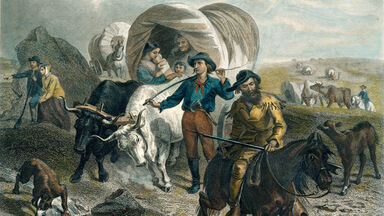Traverse Definition
trə-vûrs, trăvərs
traversed, traverses, traversing
verb
traversed, traverses, traversing
To pass, move, or extend over, across, or through; cross.
Webster's New World
To move back and forth over a place, etc.; cross and recross.
Webster's New World
To go up, down, or across (a slope) diagonally, as in skiing.
American Heritage
To move across; cross over.
Webster's New World
To swivel or pivot.
Webster's New World
Synonyms:
noun
traverses
A passing across, over, or through.
American Heritage
Something that traverses or crosses.
Webster's New World
The act or an instance of traversing.
Webster's New World
Something that opposes or thwarts; obstacle.
Webster's New World
A passage by which one may cross; way across.
Webster's New World
adjective
Passing or extending across; transverse.
Webster's New World
Designating or of drapes (and the rods and hooks for them) usually hung in pairs that can be drawn together or apart by pulling a cord at the side.
Webster's New World
adverb
Across; crosswise.
Webster's New World
Origin of Traverse
-
Middle English traversen from Old French traverser from Vulgar Latin trāversāre from Late Latin trānsversāre from Latin trānsversus transverse transverse
From American Heritage Dictionary of the English Language, 5th Edition
-
From Latin trans across + versus turned, perfect passive participle of vertere, turn
From Wiktionary
Find Similar Words
Find similar words to traverse using the buttons below.





